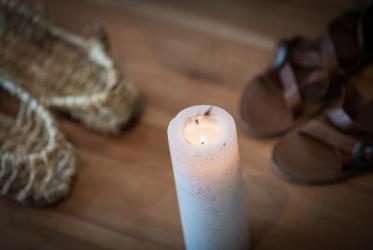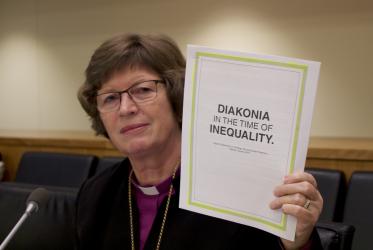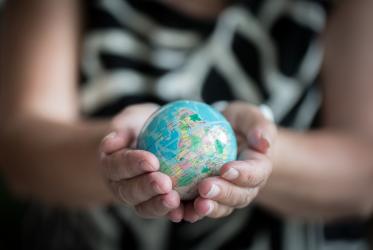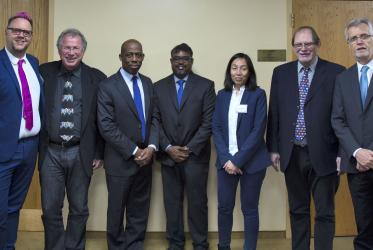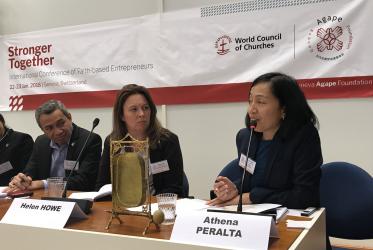Displaying 41 - 60 of 92
20 March 2019
Sustainable resourcing for sustainable development
05 February 2019
WCC moderator speaks at Justice Conference in Norway
09 November 2018
Real economic reform still sadly missing, says WCC
07 November 2018
God’s gift economy is key to churches’ mission
28 June 2018
WCC advocates for economic justice at UN conference
01 June 2018
Pope Francis at the World Council of Churches
31 May 2018
New economic architecture focus of New York meeting
22 April 2018
“Arusha Call to Discipleship” issued
13 March 2018
3rd Meeting of the Ecumenical Panel on a New International Financial and Economic Architecture (NIFEA)
21 - 22 April 2018
New York, United States
Bossey commended by University of Geneva
02 February 2018
Network of Christian entrepreneurs commits to faith in business
01 February 2018
In Nigeria, WCC workshops focus on human rights
04 December 2017
Bossey’s new missiology professor shares world of Africa and Europe
01 February 2017
Religious leaders of many faiths talk peace in Assisi
21 September 2016
A just financial and economic architecture is possible, students find
08 September 2016
